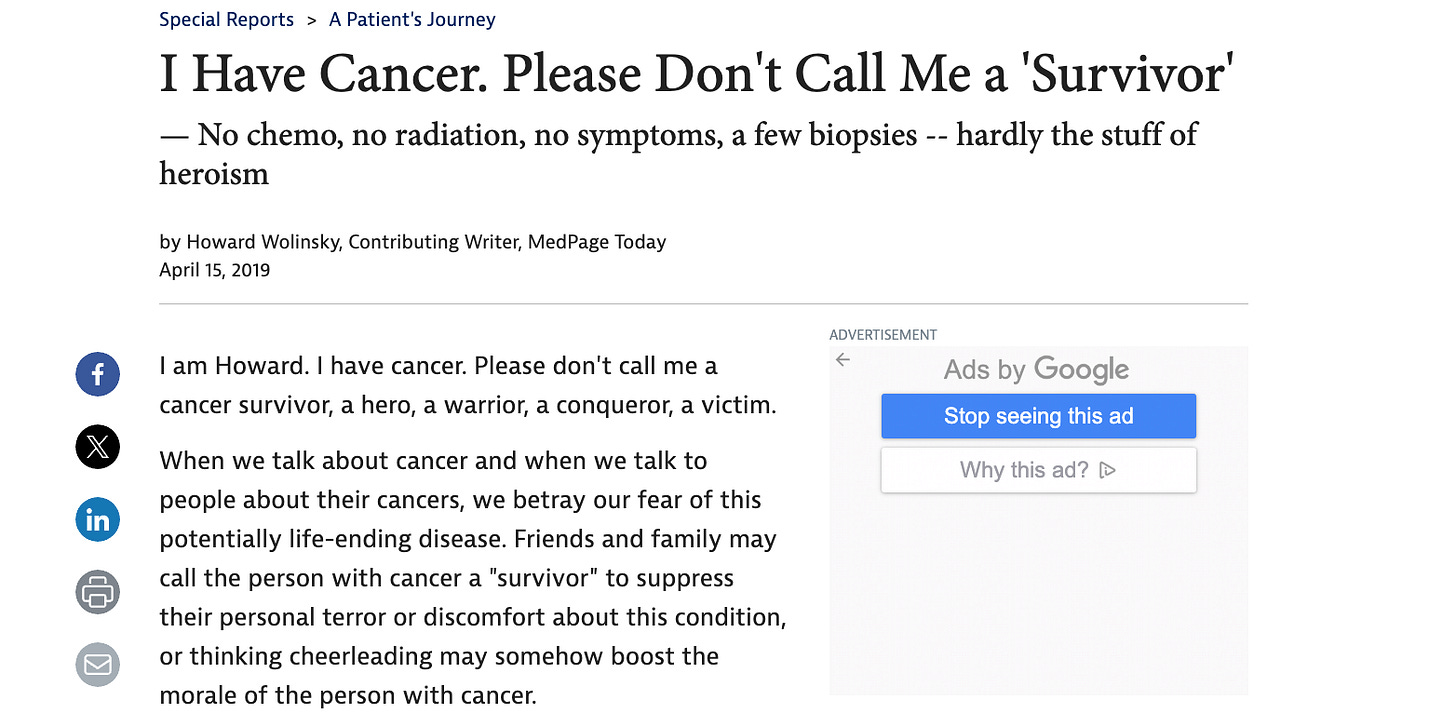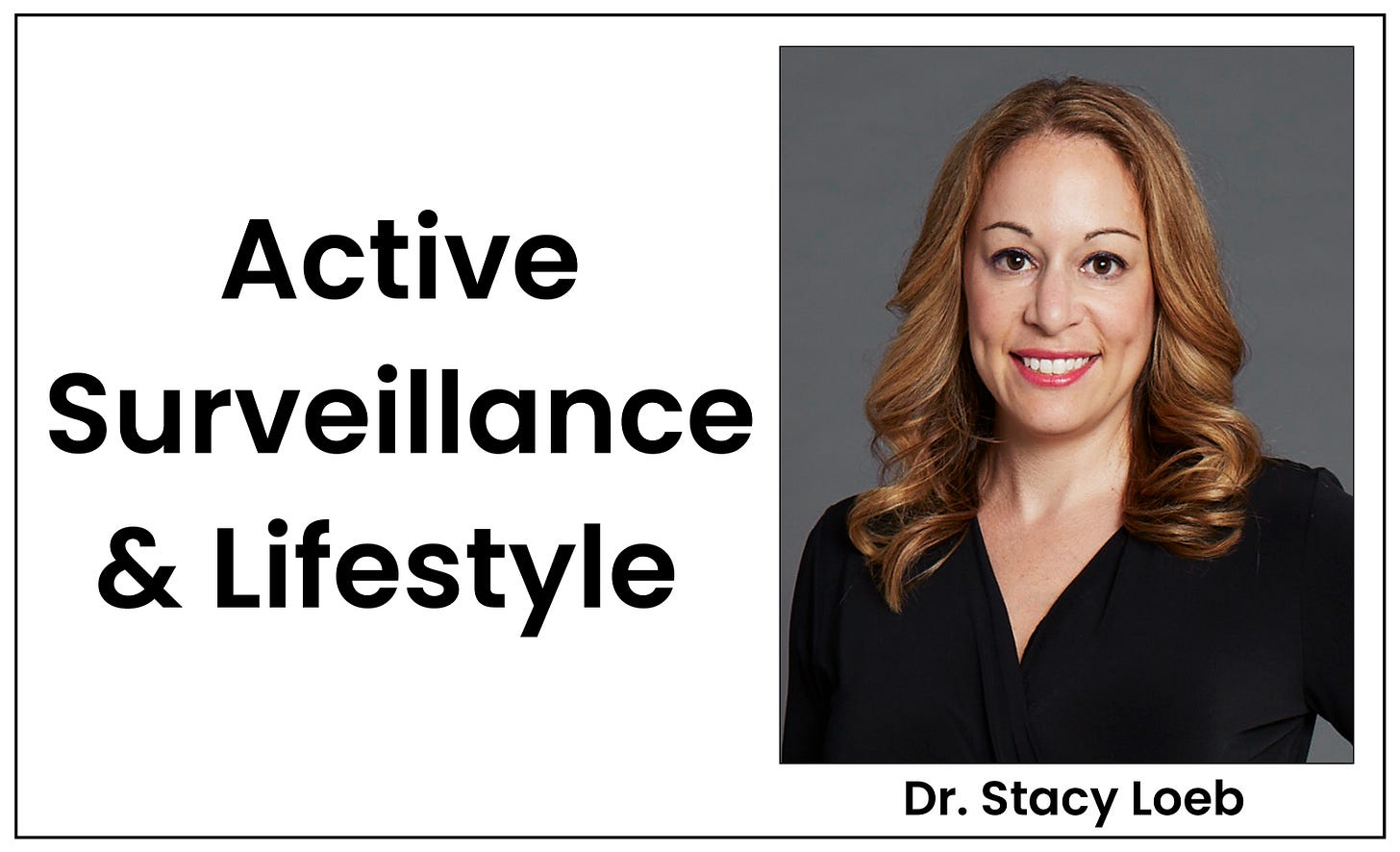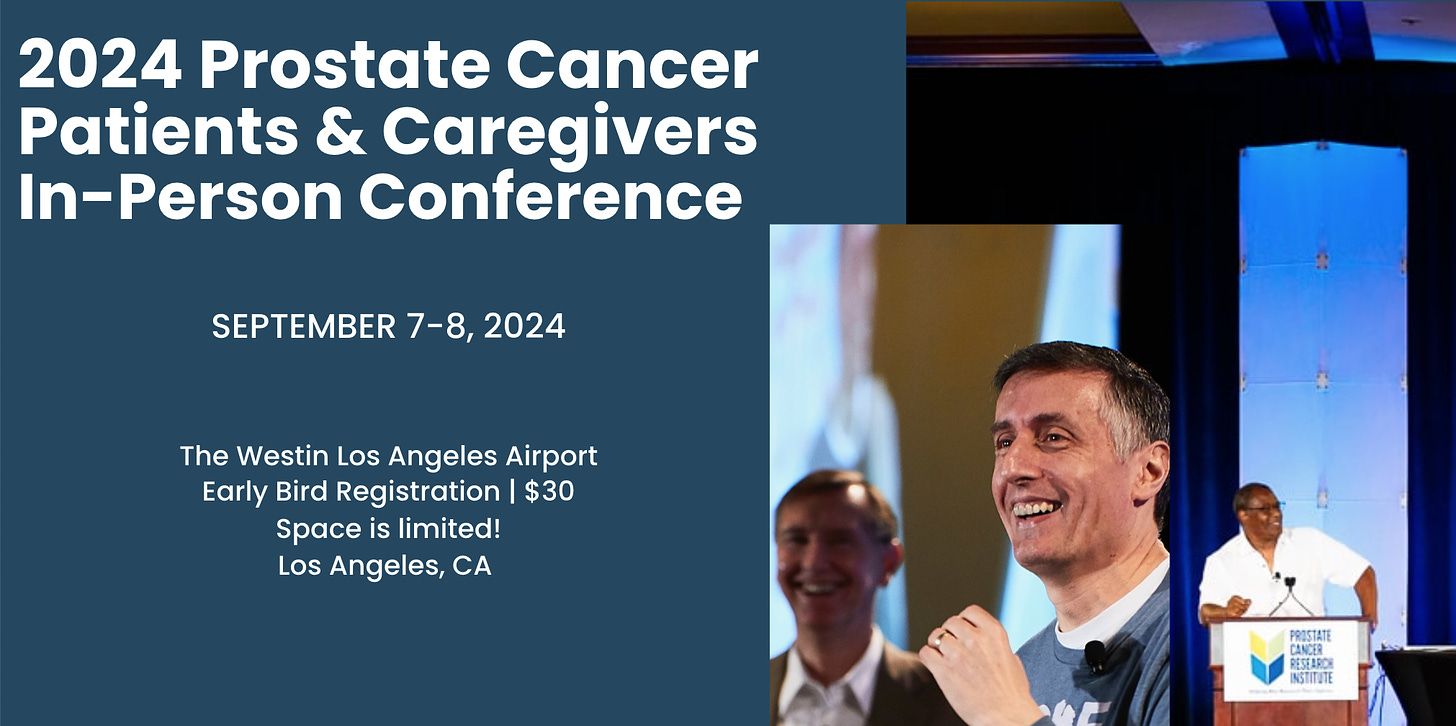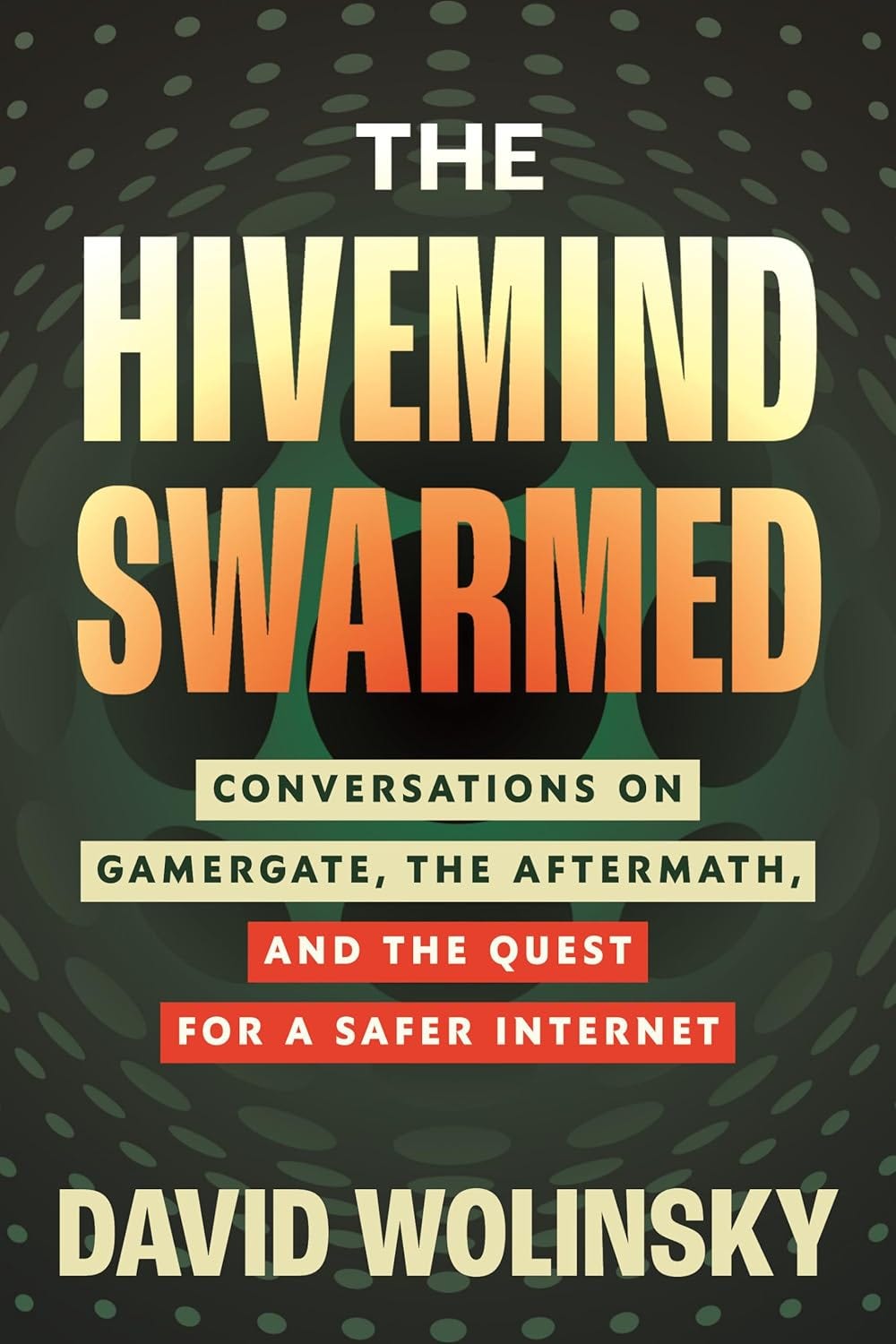The COVID-NADO and lessons I've learned about caregivers. We need them, even for Active Surveillance
Also, Dr. Loeb's column on partners and sexual QOL, & more
“As I go about the many daily tasks of caregiving, give me energy.”—The beatitudes and a prayer for caregivers, Bill Dodds
By Howard Wolinsky
Back in July, I hit a lifetime low.
My prof in public health in the Master’s of Public Health program at the Unioversity of Illinois at Chicago describes my experience as the “COVID-NADO.” She nailed it.
After four years of evading it, COVID-19 finally got me on July 7--and then my two sons, Adam and David, but miraculously not my wife Judi.
It wasn’t as bad as I had expected--at first. Just a few hours of fever on a Friday night and then a lot of coughing. But eventually, I stated to feel weak and super-fatigued. Also, confused. They call it “brain fog.” And I was foggy as hell.
Then, a EF-1 tornado landed on July 15. It roared through Flossmoor, my Chicago suburb, at 100 miles per hour, just blocks from my house. We didn’t notice at first but the ceiling in the living room was leaking. The hurricane-force winds slightly rearranged our roof, popping the nails on nine shingles. Some big branches from our old maple tree fell and blocked the narrow lane on which we have lived for 30 years.
The record 41 (so far) tornadoes that struck the Chicago area--where the locals think we’re immune to twisters because of the mitigating effect of nearby Lake Michigan--did far more damage to others. We’re not.
My family and I were among the lucky ones.
We lost power for four days while I was still quarantined. So I just stayed in bed--in 95-degree heat indoors, no lights, no net. Pretty primitive, right? Like 1950-something. Hence, the COVID-NADO.
I didn’t know I could sleep so much. Later, my sleep was disrupted entirely. I’m going to a sleep clinic in November—long wait times for us zombies—to see if I ever can sleep through the night, septuagenarian-style with a couple wake-ups to pee.
During all this, I couldn’t keep up with my graduate school homework. I lost 10 days and fell behind. Thanks to COVID after-effects, I was blissfully unaware of my predicament.
I was--and am--extremely fatigued, unable to put in even a half day of work. I am experiencing memory lapses. I’ve blacked out some days. Sometimes, I sit in my office chair and stare at the computer screen, not remembering what I planned to do--and, oddly, not panicking about it.
Actually, I’m not here to complain. I’m really here to praise caregivers.
I have lotsa problems with the language of cancer, especially for those of us on Active Surveillance (AS) for low-risk prostate cancer
I fumed at the word “survivor" being applied to me and others on AS. It sounded like we were disabled by our so-called cancers and needed the help of “caregivers,” another word I disliked because it suggested an incapacity and passivity that doesn't affect most of us.
Studies have shown that men with advanced PCa don't like being called survivors--though studies have found that women with all degrees of breast cance readily accept being called survivors.
It’s chrosome XX vs. XY thing, I guess.
I wrote a rant on cancer language in my blog at MedPageToday, where the headline and lead said:
Based on my recent COVID experience and my years as a moderator of AS support groups, I have changed my view about caregivers.
Why? Caregovers have help me make it through the COVID-NADO, and, also my almost 14 years of being dubbed a low-risk prostate cancer patient.
Even though I used to bristle at the use of the word caregiver in connection with AS, I have heard the anxiety in the voices and seen the anxiety on the faces of men on AS.
Personally, I viewed AS a means of avoiding unnecessary treatment. Mine has not been the “anxious surveillance” experienced by more than half of us that can be so intense that some men who don’t need treatment opt to go under the blade of the robo-surgeon or raygun of the rad onc.
There is a psychological burden to the disease even though the American Urological Association and the American Society for Radiation Oncology (ASTRO), unlike most other major doctor and patient groups, do not have guidelines recommending screening for emotional distress in PCa patients.
Anxious surveillance is very real.
AS patients have told me that attending support groups that AnCan and ASPI melts away their anxiety.
It took me a while to view moderators and attendees in these groups as caregivers. But they are, just like a spouse, partner, relative, friend are caregives who extend a helping hand and word in our time of need--physically, emotionally, spiritually.
Caregivers made a difference to me as I recovered from COVID.
Our sons, recovering from COVID themselves, told Judi and me, once I wasn’t infectious, that we should leave and go to a hotel near Ann Arbor, Michigan--Judi had a meeting there--and get out of the heat and darkness of Flossmoor.
Michigan was the Promised Land of A/C and Broadband. The kids said they’d take care of the post-tornado clean-up.
My family doctor at UChicago, The Amazing Dr. J., a true caregiver, told me my post-COVID symptoms eventually would “fade away.”
But he gave me a stern lecture: He said I also was feeling the effects of stress--too much grad school work, too many support group meetings, too much of too much.
. “You’re 76, not 26 (like many of my classmates, mainly medical students),” he said. He urged me to “chillax” and warned me if I didn’t slow down I could expect “an early demise.”
I wasn’t eating right. I wasn’t sleeping right. I wasn’t handling stress right. He said I was one in a million holding my own in grad school at my advanced age. He said I should consider accpeting Bs or pass-fail grades.
This was a wake-up call for a veteran workaholic, whose M.O. has been burning the candle at both ends and the middle—over the decades.
Judi and our sons have been warning me about this for years. I wiush I had listened. Sometimes, it takes a scarey moment to get us to listen.
Judi, a true caregiver, also helped me recognize that I was experiencing anxiety from my school work and everything else. I was waking up 1 or 2 in the a/m. and doing homework. Too much.
She identified anxiety as the problem. I didn’t recognize it. She taught me some meditation and breathing techniques that instantly banished anxiety.
I had to slow down.
I wrote notes to my fellow support group moderators, saying I needed to step down and reduce my load. I told another group that I would help through the end of the year with monthly webinars. But I had to stop.
I received an outpouring of support--and caregiving--from my comrades.
I was touched when one, a combat vet of the Vietnam War, said: “Howard, you need to take care of yourself first and foremost. I’m sorry that we will be seeing less of you and perhaps reading a little less of your articles and words of wisdom. Now it’s time to put all that knowledge and wisdom to work for you. Pick only what you really want to do and need to do.”
A friend, an AS patient who describes himself himself a Stoic, advised me: “You've done great work for the PCa community. However, I agree with your wife asking you to say No to stuff which is not necessary to keep you healthy. Yours and my health and mind are the only thing that we have some control with. So, please relax. Go to the woods, watch birds, take somephotographs and watch comedies on Netflix or Prime.” Amen.
(Note: I plan to stick with this newsletter. But I may publish fewer pieces per month.. I know some of you may be relieved—less homework for you. One reader, a famed pathologist, you know his name, asked me to cut back long ago.)
My grad school instructor gave me an extension to finish my course work and was very supportive. She was another caregiver.
Somehow, I got it done and contined my straight-A average. I know. Knock it off.
The Prof said: “CONGRATULATIONS for finishing on time despite COVID-NADO. I am so sorry that you had to experience all of this.…MANY of your just-out-of college classmates do not seem to keep up the way that you do, especially when faced with these SIGNIFICANT and MAJOR life challenges THANK YOU SO MUCH for participating the way that you do. I hope you know how much I appreciate it.”
I appreciated her support and caregiving.
It took my close encounters with twin forces of nature—a COVID infection and tornado—to realize I was living in a powerful network of caregivers.
Look around you. You probably are, too.
Blessed are the caregivers.
New survey on impact of prostate cancer on sexual quality of life for female partners of patients
Prostate cancer and its treatment can have a substantial impact on sexual health and quality of life for patients. The range of potential sexual side effects includes changes in libido, erections, ejaculation, penile length, and others.
These issues can also have a substantial toll for partners of patients. For example, the recent Europa Uomo Prostate Partners’ Experience Research Survey, including 1135 partners of patients with prostate cancer in Europe, reported that only 27% were satisfied with their sex life, 15% are worried about their relationship, and 20% feel lonely. Concerningly, only 20% felt they had received information about sexuality from a health professional before treatment.
Our group has conducted a series of studies with female partners of patients in the United States, showing the significant impact of prostate cancer and its treatment for their sexual quality of life. Supported by a grant from the Department of Defense, we used the results to develop a new questionnaire called the SCIPPP-F (Sexual Concerns in Partners of Patients with Prostate Cancer- Female). The questionnaire has 19 total questions related to 7 different themes which were found to be most closely linked with sexual quality of life: distress/satisfaction, loss of connection as a couple, active communication, discomfort with communication, frustration with sexual counseling, expansion of sexual repertoire, and non-penetrative sexual activity. The questionnaire was tested and found to be valid in 200 female partners from across the United States, and the results were recently published in European Urology Oncology.
We hope that the new SCIPPP-F questionnaire will be useful in future research studies and clinical practice to help identify actionable sexual health issues among female partners of patients with prostate cancer. For example, partners who report distress or challenges with communication about sexual health on the questionnaire may benefit from counseling or participation in a support group, while those seeking new ways to explore sexual satisfaction outside of intercourse may benefit from meeting with a sex therapist. In the future, we plan to expand upon this research to study the needs of male partners of patients with prostate cancer.
Finally, in collaboration with the Prostate Cancer Foundation (PCF), we created a series of online sexual health resources for couples during the prostate cancer journey. The new website includes information about specific sexual topics (e.g., problems with orgasm, ejaculation, erection, libido and sexual incontinence), as well as tools to help with the sexual recovery process and links to find help from different types of sexual health professionals. The SCIPPP-F questionnaire can also be freely downloaded from the PCF website for anyone who is interested to try it out. Partners with higher scores on the questionnaire (indicating worse quality of life) are encouraged to review the results with a healthcare provider or seek additional support through individual or couples counseling, sex therapy or a support group.
Stacy Loeb, MD, MSc PhD, (Hon) is a Professor of Urology and Population Health at NYU Langone Health and the Manhattan Veterans Affairs, specializing in prostate cancer. Dr. Loeb completed her urology residency training at Johns Hopkins and subsequently received a Master of Science in Comparative Effectiveness Research at NYU School of Medicine.
Dr. Loeb is an internationally recognized expert in prostate cancer with more than 340 peer-reviewed published articles and 11 book chapters. She is on the Editorial Board for the Journal of Clinical Oncology, European Urology, Urology Times, Nature Reviews Urology and Reviews in Urology. Dr Loeb authored the chapter on “Diagnosis and Staging of Prostate Cancer” for Campbell-Walsh Urology, the primary textbook used in the field of urology.
For more on caregivers, check out this column:
Active surveillors, join me at PCRI
By Howard Wolinsky
PCRI is back in person, baby.
And I’ll be getting on my first flight on aSouthwest bus from MDW to LAX since COVID, and joining in the fun. If you consider prostate cancer fun.
Yes, the Prostate Cancer Research Institute’s 2024 Prostate Cancer Patients & Caregivers In-Person will be held in-person for the first time since 2019. But it’s back in person, Sept. 7-8 at the Westin Los Angeles Airport.
The popular patient-oriented meeting had switched to virtual because of the COVID-19 pandemic.
I will be co-moderating the AS support group with Bill Manning, the new executive director of Active Surveillance Patients International. This runs from noon to 1 p.m. PST on Saturday, September, 7.
I also will be moderating “Ask the Experts” at 8 a.m. PDT, Sunday September 8 with Laurence Klotz, MD, of the University of Toronto, who named and helped develop Active Surveillance (AS) back in the 1990s. AS has been an overnight success that took 30 years to catch on.. Maybe, if we have time, we can ask Dr. Klotz about his career as a Jazz musician?
Register here.
Read David Wolinsky’s 1st book
By Howard Wolinsky
Our son David Wolinaky just came out with his first book, “The Hivemind Swarmed.,” the first book of its kind—a sorta documentay in print—about the Gamergate scandal a decade ago.
My. copy just arrived in my Kindle. You can get one, too, at Amazon.
Unsolicited support from Dr. Christian Pavolovich
“I continue to commend you for your excellent patient advocacy, education, and patient-focused research in general – keep up the good work."
Dr. Pavlovich is director of the Prostate Cancer Active Surveillance Program at the Brady Urological Institute and is Bernard L. Schwartz Distinguished Professor in Urologic Oncology at the Johns Hopkins University School of Medicine.
Thanks, Dr. Pavlovich, Howard.







Rick,
Good point. I kinda lick care partner, too. And I knew you favopred it.
Maybe I'll create a poll and have readers decid?
Howard
Hi Howard—I’m glad to hear you’re slowing down in some areas in order to take care of yourself. You deserve TLC from other folks AND from yourself. I know in my life I’ve often had to get clobbered over the metaphorical head to listen to my body-mind and heed its’ messages.
And I want to thank you again for the pointers you’ve given me—Dr Eggener at U of Chicago and Dr Marks at UCLA— I learned of HoLEP from Dr E and Dr M referred me to Dr Dunn who performed the HoLEP surgery 5 weeks’ ago..I’m now peeing like a 16 year old!
Take good care of thyself!
Peter